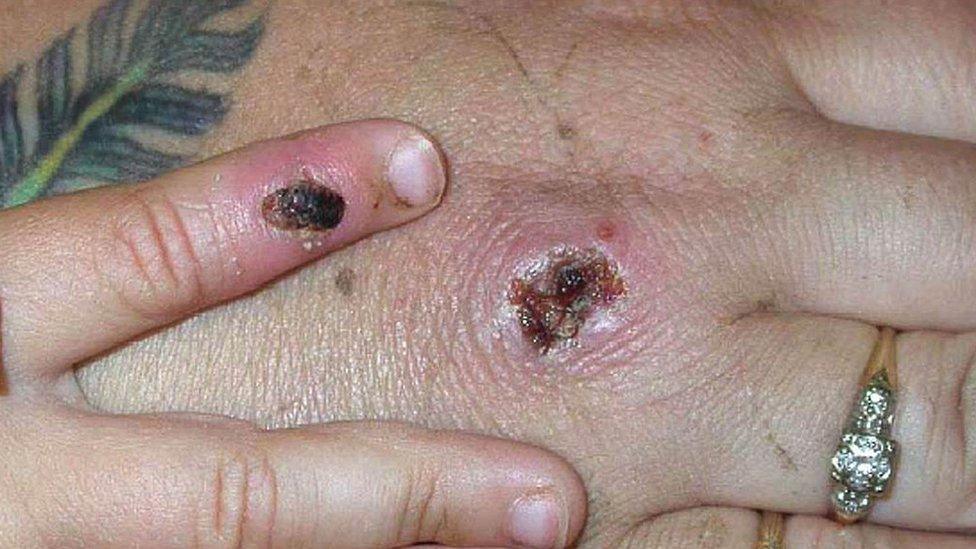Monkeypox: Fears vaccine shortage could cause spike
- Published
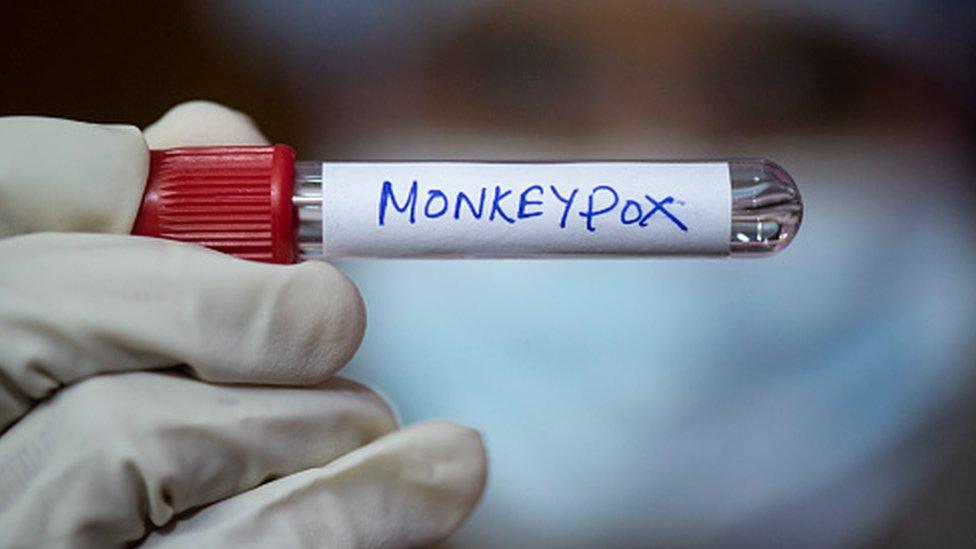
Monkeypox is caused by the monkeypox virus, a member of the same family of viruses as smallpox
Monkeypox cases could spike because of a shortage of available vaccines, it is feared.
The warning comes as festival season continues with Green Man held this weekend - the disease is spread by close contact with an infected person.
Public Health Wales recorded three more cases in Wales last week, bringing the total to 40.
The Welsh government said the number infected was low and the risk of catching monkeypox "extremely" low.
Sexual health consultant Dr Olwen Williams called the lack of vaccine a "huge concern".
"The last few weeks we haven't been able to distribute it at all," she said.
"We have been able to give it to people who have been direct contacts of people, but there's been such a huge surge of individuals across the UK coming forward for the vaccine, that it's really outstripped the demand.
"There's a possibility that there will be an increase of cases because of supply issues."
Dr Williams urged people to be aware of the symptoms and isolate if they develop them.
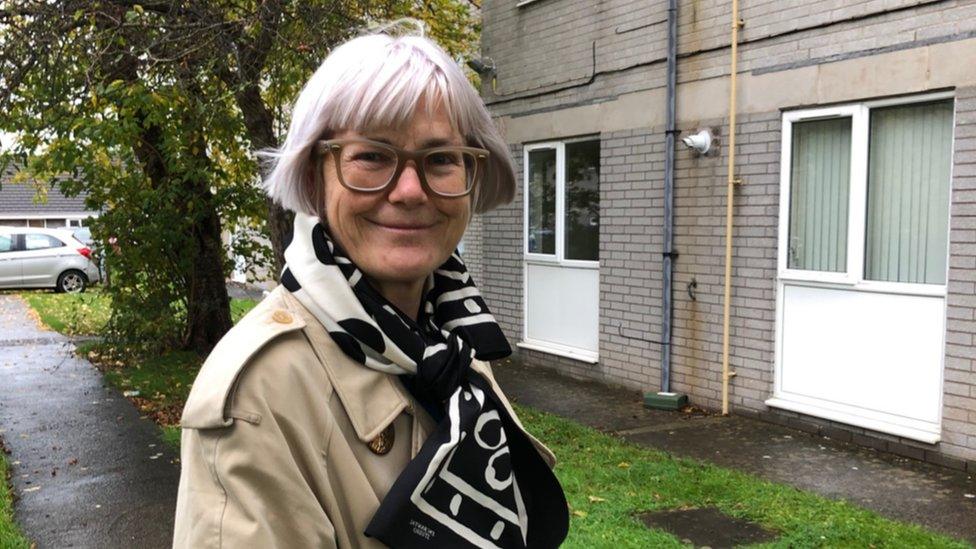
Dr Olwen Williams, called the lack of vaccine supply a "huge concern"
She added: "If people acknowledge the need to use condoms if they're having sexual activity then we might just slow the spread.
"We're coming up to Pride in Cardiff over the bank holiday weekend, so again it's making sure people are aware of what the risks are and coming forward when they're called to get their vaccine."
Those currently eligible for vaccination in Wales are some health workers, people who have come into contact with the virus, or men who are gay, bisexual or have sex with other men.
The UK Health Security Agency said this week it would hold back doses for people already exposed to the virus.
LGBTQ+ campaigner Christian Webb received an official text to confirm he was eligible for the vaccine.
As a gay man he was deemed to be in an at risk group.
"It's pretty worrying that we are not able to access the vaccine in the numbers that we need," the 27-year-old said.
"Without that vaccine the virus is going to spread. We have a population who are willing to go out and vaccinate but without that supply we can't."
Mr Webb, who works in Cardiff but is originally from Swansea, feared the spread of the disease could be fuelled by festival season.
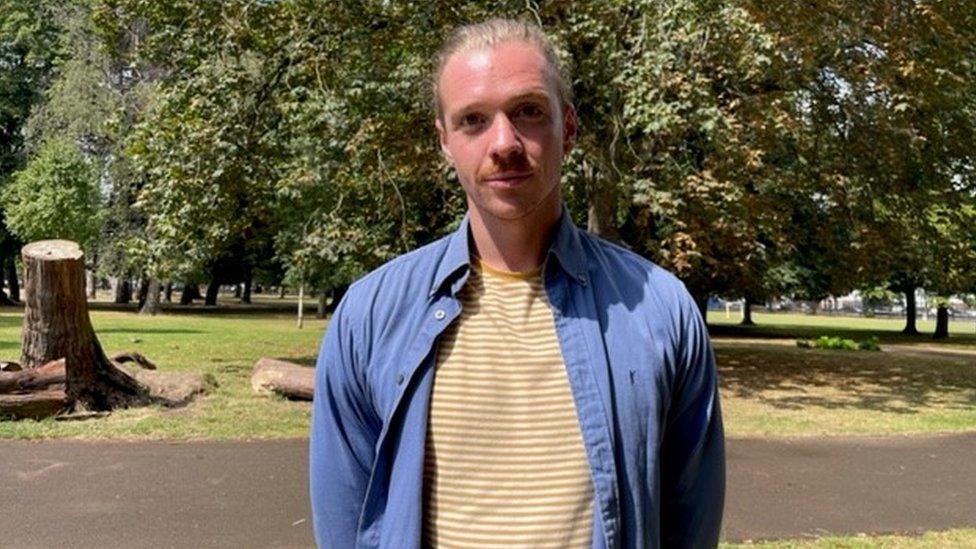
LGBTQ+ campaigner Christian Webb feared the spread of the disease could be fuelled by festival season
He said: "If there is a month break where we have lots of close contact, lots of festivals, lots of things happening, I fear without a continued effort we might see cases increasing."
Even after he was messaged to say he was eligible for vaccination, getting jabbed was tricky.
"I received a link for the vaccine but the link didn't work," Mr Webb said.
"I had to ask a friend where I could get access to that vaccine."
Public health messaging about how to stay safe needed to be clear, he said.
'Risk of catching monkeypox is extremely low'
And patients must not be stigmatised as those with HIV were in the 1980s.
"I'm nervous in this break period, where we may not have enough vaccine, that the finger will be pointed at individuals," Mr Webb said.
The Welsh government said Wales' health boards had vaccine supplies and a fresh delivery was expected next week.
"There are no plans to halt delivery of the jab in Wales," a spokesman said.
"The number of people affected in Wales remains low and the risk of catching monkeypox is extremely low.
"It is important to be aware that evidence shows the virus is treatable and the illness is usually mild.
"Most of those infected will not require treatment and will recover by themselves within a few weeks."
- Published15 August 2022
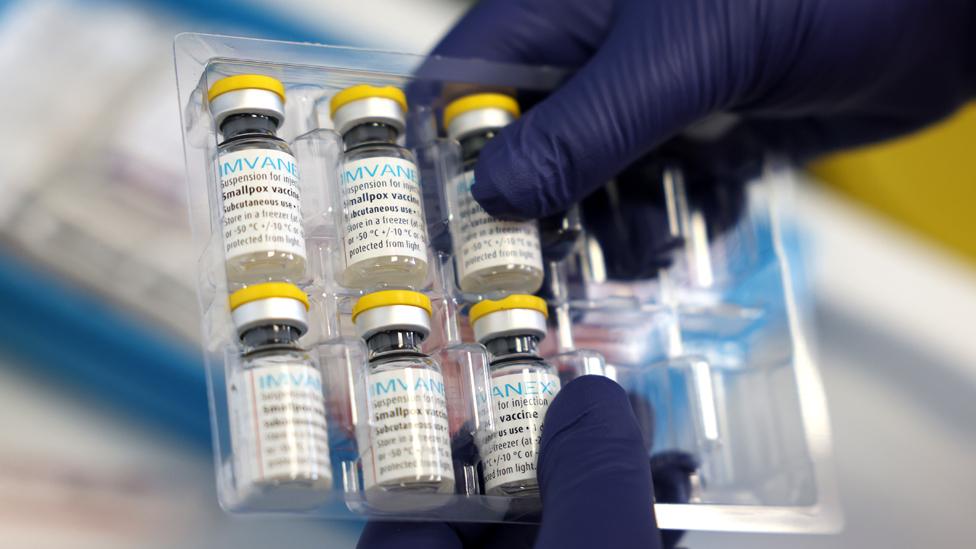
- Published5 August 2022
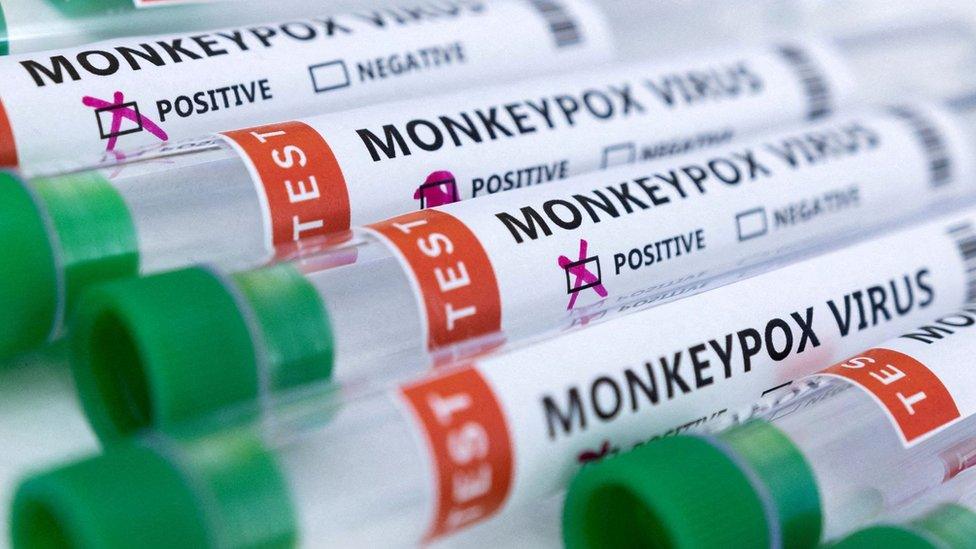
- Published26 May 2022
